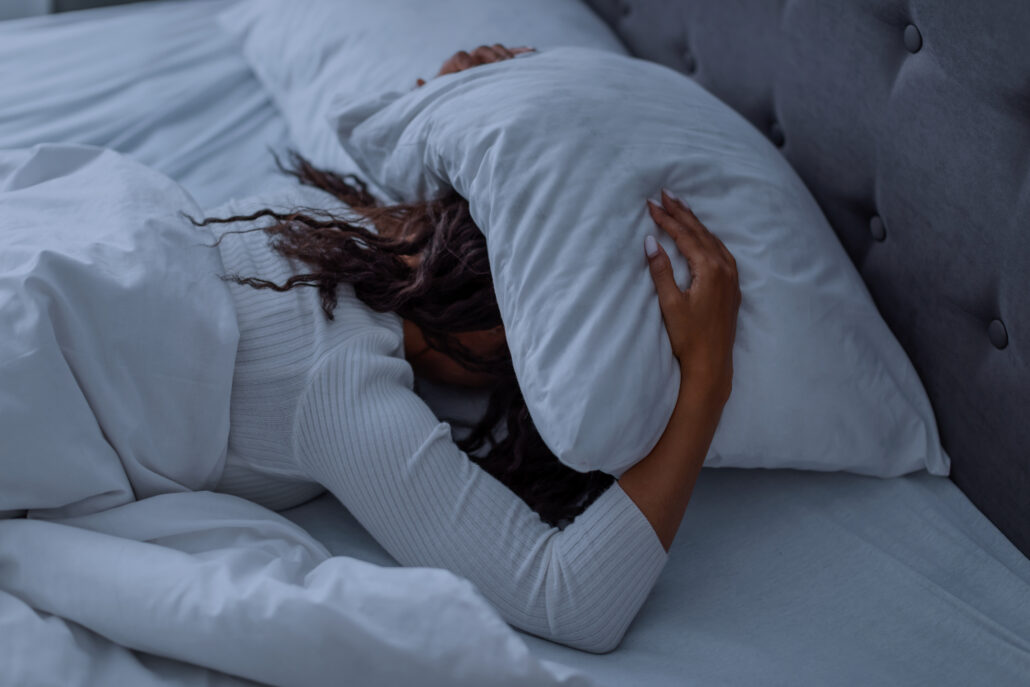
If you haven’t been in a dorm or on-campus apartment lately, expect to be amazed. Colleges and universities are going all out to create impressive student housing facilities to compete for enrollment. Your son or daughter may find themselves living in a place that features resort-style amenities like a BBQ area, a yoga studio and a coffee shop.
But looks can be deceiving when it comes to getting a good night’s rest. Dorm room mattresses can be tough – literally. (More on that later.) Roommates may have different sleep schedules. Plus, getting enough shut-eye is difficult when there’s the potential for noise and ruckus all hours of the day and night. There’s no telling when a toga party might break out.
It’s time for a lesson on how you can help your co-ed get better sleep at school.
Why College Students Should Take Sleep Seriously
Young adults need eight hours of sleep to function well. Yet, most college students fall short.
“On average, college students get less than 7 hours of sleep per night, and the college years are notoriously sleep-deprived due to an overload of activities,” this according to collected research on the topic of sleep by the University of Georgia. “Insufficient sleep impacts our health, our moods, our GPA and our safety.”
Research from Harvard University shows that in addition to achieving improved grades, students who get a good night’s sleep have better memories, lower their risk of obesity and decrease their chances of getting sick.
Sleep is a requirement for good mental and emotional health, too. Studies from the National Institutes of Health report that those who don’t get enough sleep often experience increased negative feelings and potentially, hopelessness, drug use and even suicide.
Dorm Mattresses Won’t Have Their Back
The literal basis for good sleep is the mattress. Unfortunately, the mattress that the school supplies will probably not be ideal for a couple of reasons.
- It’s used. A lot. Dorm mattresses take a beating. With space at a premium within a crowded dorm or apartment, the bed often doubles as a sofa, a study lounge and a dining room table. (Let’s all admit we’ve turned our bed into a dance floor at least once, too.)
- It’s got wear, tear and worse. As you would expect, the older a dorm mattress is, the more uncomfortable and – well – gross it’s likely to be. The polyurethane foam core found in the majority of dorm mattresses will sag and soften with use, making the bed unsupportive. Worse yet, a dorm mattress can harbor nasty bedbugs, mold and bacteria. You don’t know who used that mattress before you or what they did on it.
So What Can You Do?
You don’t have to force your kid to attend your local college and commute from home to avoid dorm living completely. There are a few simple things you can do to help:
- Buy a mattress. We get it. This option isn’t always feasible, but it IS the one sure way to know exactly what your cherished student will be sleeping on. Just like shopping for a mattress at home, take your son or daughter with you to test out for comfort.
- Buy a mattress encasement. If you’re stuck with a dorm-issued mattress, a mattress encasement is a must. We’re not talking about a mattress pad here. Think of this as your dust-proof, waterproof mattress shield. Encasements are zippered, six-sided items designed to fully separate your bed linens from the mattress. Look for encasements made of breathable fabrics that won’t make noise when you move. High-quality construction and materials will ensure your encasement will last the four (OK, maybe five or six) years your kid will be at school.
- Buy a mattress topper. A mattress topper sits on top of the mattress to offer extra cushioning and even out mattress lumps. Toppers can be made of memory foam, quilted down or cotton and other materials. Firmness and thickness will vary, so choosing a topper is largely a matter of personal preference.
Before you buy a mattress or any mattress accessory, make sure you know the size of the bed frame that is supplied with the room. Most dorms have beds that feature twin XL mattresses, but not all. Find out before you buy the wrong size and you’ll avoid the hassle of having to make a return and scramble to find the right-sized replacement.
[av_sidebar widget_area=’Quiz Banner’ av_uid=’av-2ad5hk’]
A Word About Ambiance
The sleep environment is just as important as the mattress they’ll sleep on. Encourage these techniques and habits that make it easier to fall asleep and get quality rest.
- Cool it off.If they have control of the temperature, advise them to keep it between 65 and 67 degrees for sleeping.
- Sleep unplugged.They may not listen, but remind them that laptops, tablets, smartphones and televisions before bed are a bad idea. The blue light they emit has been shown to disturb sleep.
- Stay organized. A cluttered room can breed anxiety. When it comes to creating the ideal bedroom and getting a good night’s sleep, less is often more.
You Should Sleep Well, Too
Sending your kids off to school is a life-changing event that may leave you feeling sad or overwhelmed. Living through emotions like that can be rough. But take comfort knowing that you did your homework. You’ll pack them up with everything they need to be well rested and ready to tackle college life.
Don’t forget about your sleep, either. Be sure to sign up for our newsletter, The Snoozzze, to get the latest sleep research and tips to help you and the entire family get better sleep.
Shut-Eye 101: Help the co-ed in your life get the rest they need with these simple tips for #bettersleep from @BetterSleepOrg.Sources:
- https://www.nreionline.com/student-housing/focus-student-housing-amenities-changes-luxury-health-and-wellness
- https://www.ncbi.nlm.nih.gov/pubmed/25178930
- https://healthresearchfunding.org/sleep-deprivation-college-students-statistics/
- https://www.affordablecollegesonline.org/college-resource-center/guide-to-sleeping-for-college-students-and-teens/
- https://www.nhlbi.nih.gov/health-topics/sleep-deprivation-and-deficiency
- https://www.hsph.harvard.edu/nutritionsource/sleep/
This blog provides general information about sleep and sleep products. The words and other content provided in this blog, and in any linked materials, are not intended to replace a one-on-one relationship with a qualified heath care professional. This blog should not be construed as medical advice or used to diagnose, treat, prevent or cure any disease or condition. If the reader or any other person has a medical concern, he or she should consult with an appropriately-licensed physician or other health care professional. This blog is not a substitute for professional medical advice, diagnosis or treatment, and should not be relied upon to make decisions about your health or the health of others. Never disregard professional medical advice or delay in seeking it because of something you have read on this blog or elsewhere on bettersleep.org. If you think you may have a medical emergency, immediately call your doctor or dial 911.



